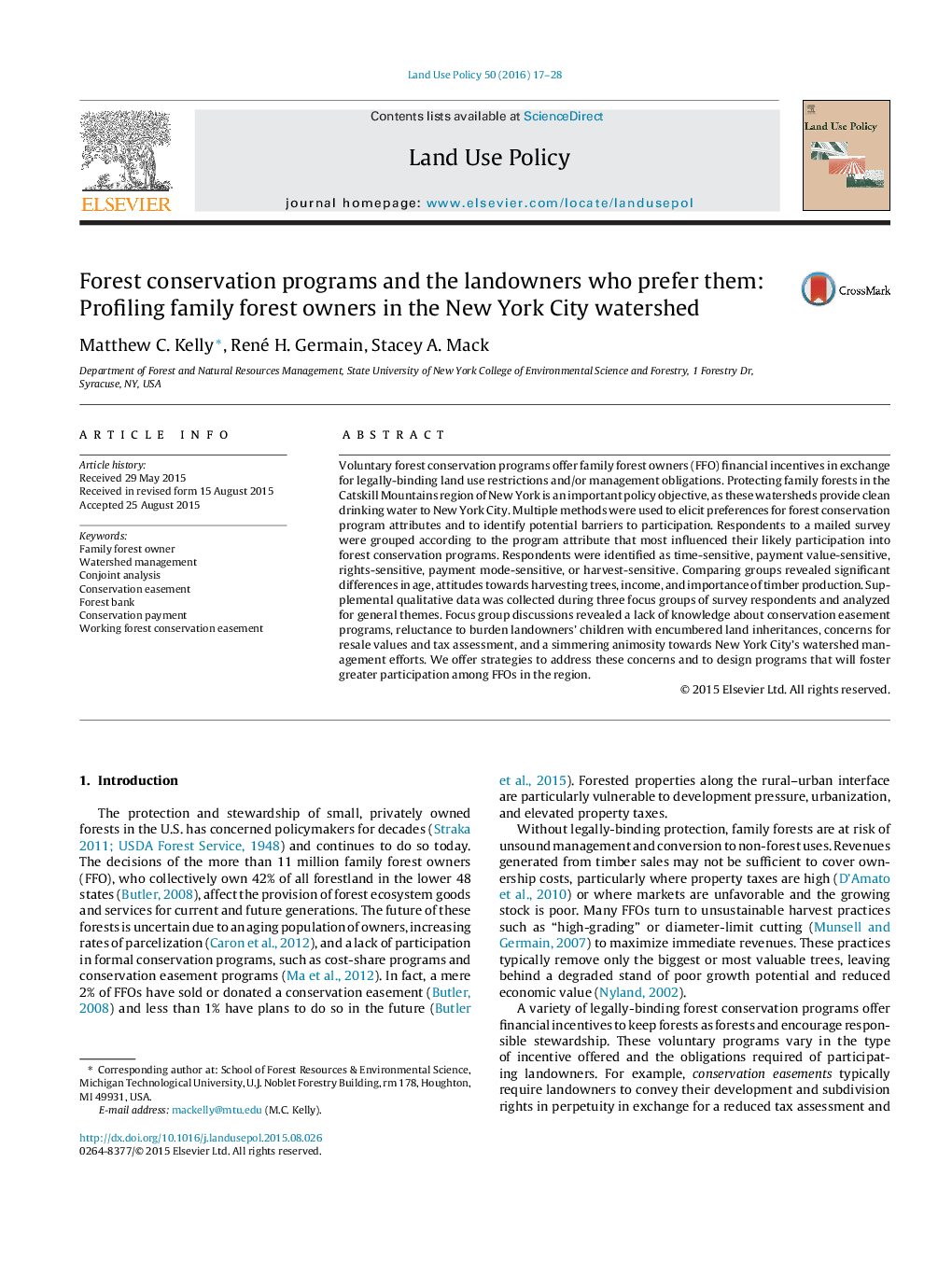| Article ID | Journal | Published Year | Pages | File Type |
|---|---|---|---|---|
| 6547543 | Land Use Policy | 2016 | 12 Pages |
Abstract
Voluntary forest conservation programs offer family forest owners (FFO) financial incentives in exchange for legally-binding land use restrictions and/or management obligations. Protecting family forests in the Catskill Mountains region of New York is an important policy objective, as these watersheds provide clean drinking water to New York City. Multiple methods were used to elicit preferences for forest conservation program attributes and to identify potential barriers to participation. Respondents to a mailed survey were grouped according to the program attribute that most influenced their likely participation into forest conservation programs. Respondents were identified as time-sensitive, payment value-sensitive, rights-sensitive, payment mode-sensitive, or harvest-sensitive. Comparing groups revealed significant differences in age, attitudes towards harvesting trees, income, and importance of timber production. Supplemental qualitative data was collected during three focus groups of survey respondents and analyzed for general themes. Focus group discussions revealed a lack of knowledge about conservation easement programs, reluctance to burden landowners' children with encumbered land inheritances, concerns for resale values and tax assessment, and a simmering animosity towards New York City's watershed management efforts. We offer strategies to address these concerns and to design programs that will foster greater participation among FFOs in the region.
Related Topics
Life Sciences
Agricultural and Biological Sciences
Forestry
Authors
Matthew C. Kelly, René H. Germain, Stacey A. Mack,
